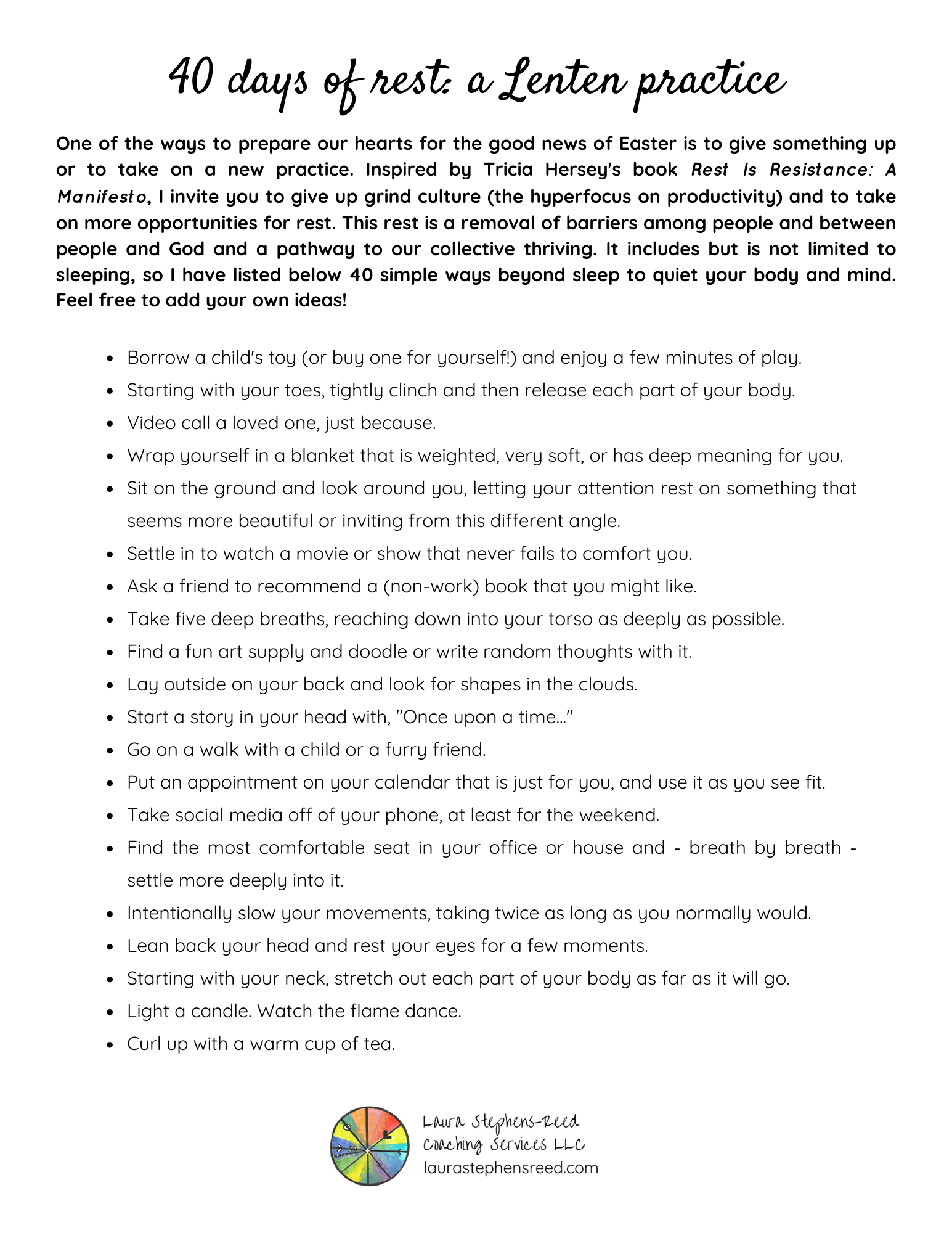Recently I was coaching a pastor who was two months into a new call. She was excited about her church and its mission potential. She was also enjoying getting to know the people, but she was having trouble trusting them. She was a bit befuddled by this, because there was no overt reason for this hesitation. She hadn’t received any hurtful criticism or significant pushback. When I asked what the lack of trust was about, she thought for a moment. She then named relational fatigue as a key factor. In this pastor’s case, she had taken a full month off – a typical fallow period – before diving into her new ministry. And yet she was recognizing that she needed more time to tend to her (understandably) tender heart after leaving behind parishioners that she loved.
This pastor had just provided perhaps the most powerful testimonial for taking ample time off between ministry positions. We often cite physical and spiritual exhaustion as the primary motivators for spacing out calls. But bringing closure to relationships with people we’ve walked alongside during their personal milestones, with whom we have dreamed and argued, and who have been present for our own ups and downs is hard, good work. It can be overwhelming to think about opening ourselves up to knowing and being known by a whole new congregation. And yet, the bedrock of strong connections is trust, which we do not lend or receive without the willingness to make ourselves at least a little vulnerable.
This is not to say that it’s easy to take long stretches between ministry positions. Personal financial pressures are real. Churches that have been in long search processes are eager for the uncertainty to end and the settled pastor to arrive. (Search teams in particular are known to apply pressure to be on site as soon as possible. After all, the team members know the incoming minister best and are most excited about her arrival!) The pastor herself is looking forward to a fresh start in a new setting. But before committing to a start date, consider not only what you need in terms of every manner of recovery, but also what time frame will allow you to enter the system with a readiness for mutual belonging. This is a mindset – a heart orientation – that attends to the long-term missional and financial health of both clergy and congregation.
If you are already in place and find yourself reluctant to trust even in the absence of conflict, then self-care is in order. When we are unable to risk exposure, whether we are new in a call or ten years into our tenure, we need time to rest. We need space for introspection. We need opportunities to view or create beauty. We need relief from the relentlessness of ministry. Because if we have not tended to our own inner lives, we will not be able to offer a quality of presence to others. And if we withhold, then we do not build trust and do not forge or maintain relationships that make bold ministry possible.
In the case of my coachee, we strategized ways to create space and clarity within her current personal and professional realities so that she could increase her capacity to trust. If you find yourself turning inward in your ministry setting, what changes do you need to make so that you can be the pastoral leader God has called you to be?
[Note: my coachee graciously granted me permission to share her story.]





